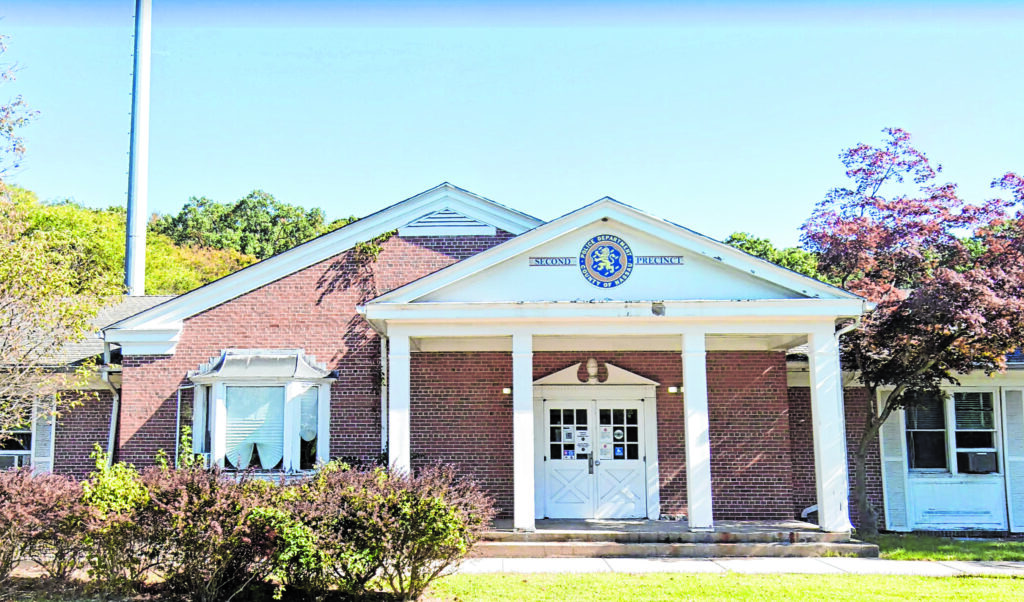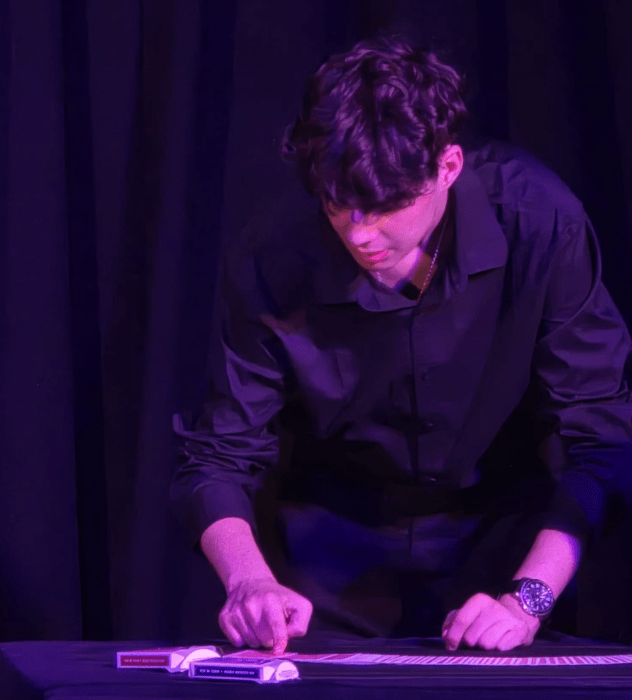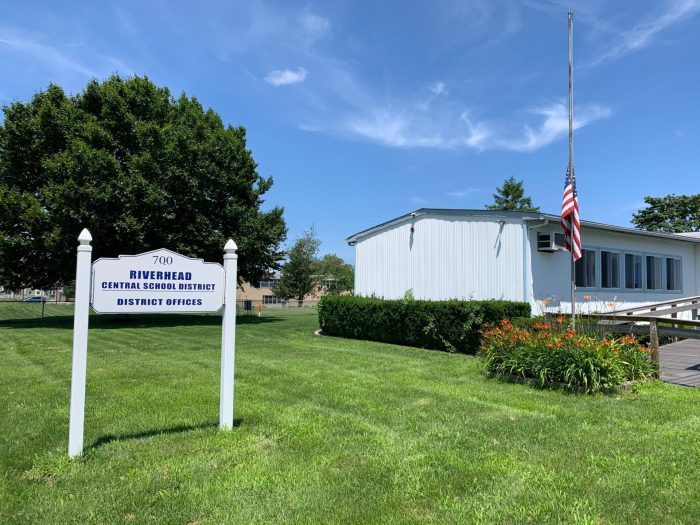Even police officers’ families can get careless. Det. Sgt. Jeffery Raymond, commanding officer of the Nassau County Police Department’s Burglary Pattern Squad, came home one day and discovered that his wife had left the key fob in her car—always an invitation to car thieves. So he got in, started it up and drove the vehicle to where he could leave it overnight. And the next morning she told him, “Somebody stole our car!” and he acted shocked and went along until he revealed the truth.
His wife is on to him now after he did it a second time, he told an appreciative audience at the Syosset/Woodbury Community Center on Aug. 24. He was the principal speaker at a community forum hosted by Nassau County Legislator Arnold Drucker.
Drucker said, “This meeting was precipitated by a number of calls I received from concerned residents who have been experiencing a significant amount of burglaries. There has been a spike in crime and the [NCPD} is well aware of it. The purpose of this meeting is to allow you to ask questions and to hopefully get the answers that make you feel better and make you feel more comfortable. And maybe we could find out how we could do more to help the police to stop crime.”
Drucker was joined at the head table by the deputy commander of the Second Precinct—headquartered nearby—Deputy Inspector Joseph Massaro, and Problem Oriented Policing (POP) officers Chris Lovelace and Frank Vescio.
Raymond, who had recently started his 26th year in the NCPD, said he was going to discuss auto thefts and residential burglaries
“My goal tonight is to change your perception of crime,” he told the dozens of people in attendance. “And how to look for crime because we need you guys to help us, and I’m going to go through a bunch of things that will hopefully change your perception on certain things that go on in the neighborhood.”
Previous to his current post, Raymond had been tasked by then Commissioner Thomas Krumpter to start the Criminal Intelligence Rapid Response Team (CIRRT), which is still active today.
In late 2015, he was asked by future Commissioner Patrick Ryder to address the uptick in burglaries, which had increased 78 percent for the year, with about 1,000 residential burglaries recorded. It was then that the Burglary Pattern Squad was formed and Raymond said it proved a success—last year the residential burglaries countywide had been reduced to about 300.
The secret, he said, was that the squad focused on organized crime burglary groups that operated mainly on the wealthy north shore. It took down some of the groups, but he admitted that this year there had been a rise in such burglaries.
Raymond also acknowledged that “auto crime was successfully brought down significantly over a couple of years, but this year, it’s going back up tremendously.”
He said that a determined enforcement effort brought the rate down significantly, but stolen cars are still up 128 percent compared to this time last year. There was a simple way to put an end to this, and the citizens had a role, Raymond affirmed.
“I would say in 95 percent, if not more, of stolen cars, the key fobs are left in the car,” he said.
Again, auto theft was largely an organized activity, with young men sent to Nassau to look for luxury brands. A Range Rover, he said, can fetch between $4-7,000 when driven to New Jersey, where the criminal element originates. Raymond said his squad is working with the FBI, federal marshals and other law enforcement agencies to take down the malefactors behind the crime.
The other factor in car thefts is when people leave their car running and unattended, especially at gas stations. A man in the audience related such an incident that happened recently.
Neighborhood Watch
Raymond told attendees that they had to become aware of their surroundings, to look for unusual things in their neighborhoods, such as cars parked where on-street parking is prohibited. Out-of-state temporary paper license plates, he said, are almost always indicative of a stolen car.
Both he and Massaro urged people to call 911 when they saw something unusual. Sometimes it was not a high-priority call, but a patrol car would respond eventually and write up a report. The accumulation of such reports will in time enable analysts to determine trends and focus enforcement efforts on specific areas.
Someone asked about community watches, and Raymond said he was in favor of the idea, Lovelace said he and his POP division had recently met with dozens of Jericho residents who wished to create a community watch and he would be amenable to aiding the effort. But he warned against resorting to any kind of vigilantism. He urged attendees not to confront criminals, but keep a distance and call 911.
Raymond turned to residential burglaries, saying that it’s one of the most intrusive crimes that could happen.
“We all agree your home is your home base, is your safety, is your sanctuary. We take this very personally in the office. We actually get angry when you guys get hit,” he asserted.
Burglaries, in his vast experience, were not committed by landscapers or painters or house cleaning crews. They were done by sophisticated, organized gangs led by Chilean and Colombian nationals who drove luxury cars and dressed in expensive clothing. These were deemed terrorist groups by Homeland Security, thanks in part to lobbying efforts by the NCPD.
In talking to suspects, he related, police learned that they used tools such as Zillow and Google to scope expensive neighborhoods and then drove past to check for vulnerable residences. They were brazen—knocking on doors after watching people leave for work in the morning to see if anyone was home. He spoke of a case where thieves called in a food order, leaving instructions to leave it on the steps and knock. When no one answered the knock, they knew the coast was clear.
As far as deterrents, Raymond emphasized, “Lights, lights, lights, They’re so cheap now, it costs nothing to light your house with modern LEDs.”
House alarms were also crucial, he said, but he urged people to have them turned on even when they were home, or when they left for short errands. The second floor should be alarmed as well, as thieves were known to climb up the sides of houses.
A woman said that two burglaries in her neighborhood happened when the residents were home, and Raymond admitted this was unusual and speculated on how it could have taken place.
“I can tell you they do not want you home,” he stressed. “They do not want to ever confront you. That’s a huge escalation. They know they’ll go to prison for a long time.”
Raymond said that his squad, as well as the Bureau of Special Operations and CIRRT are sent into neighborhoods to patrol and even park for hours at a time, looking for potential burglars.
Alluding to his earlier advice, Raymond said, “If you start calling [911] on the cops, that’s good. That means we’ve changed the way you think. You [realize] the car doesn’t belong here.”
One attendee, Robert Staller, had moved to Massapequa, but he still belonged to the East Birchwood (Jericho) Civic Association where he used to live. He told the Tribune that he found the meeting useful and wished more people had shown up.
“You learn a lot, even if it’s one thing,” he said.



































